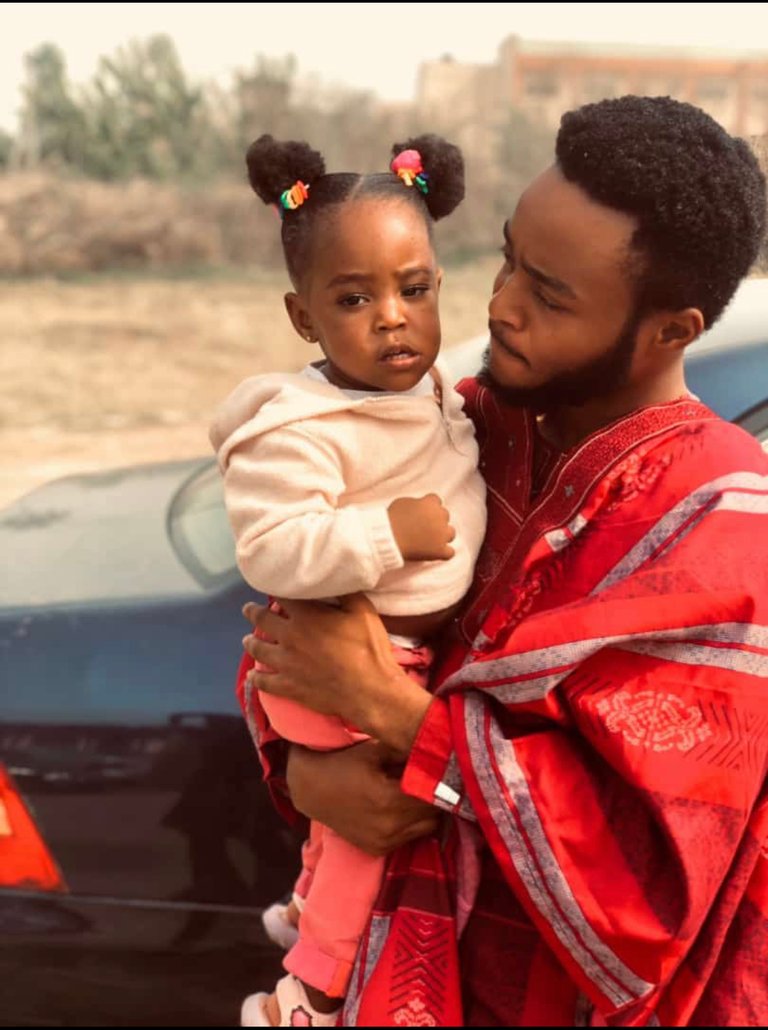
There's no one way of disciplining; each parent has their own unique approach. It's up to them to choose whichever method works best for their family. What works for Parent A might not work for Parent B. Some parents may need to explore different approaches before finding one that fits their needs, while others are lucky enough to find an effective and efficient method quickly. It is like digging through a tunnel, finding treasures. Some parents may be lucky to find treasures at the beginning of the tunnel, while others may find them at the middle or even the end of the tunnel. What’s important is that they don’t stop digging. It is a new week and for today's edition of Hive learners prompts, we are asked to discuss parenting. What methods of discipline are okay to use on children? After correcting them, how do we go ahead to make sure that they don’t attempt to default again?
Children are like empty drawing boards. The paint and paintbrushes are in the hands of their parents, and the children are just there, watching and waiting to be painted, designed, and styled. As I mentioned above, there is no one way of disciplining a child, there are different methods. However, when it comes to disciplining a child, the first method, which I consider the most important, is to lead by example. Parents should show their children the right way to behave by demonstrating them. Growing up, children do not know right from wrong- their brains are still developing, so they watch the attitudes and actions of their parents. Gradually, they start mimicking them.
Last week, I started a course on Psycholinguistics and our lecturer told us that one of the ways children acquire languages is through the people around them, particularly the mother who is closest to them. For instance, a child born into a family where the parents and older siblings constantly use negative words like insults. That child will grow up to inculcate those words in their daily dictionary. On the other hand, a child who grows up in a family where everyone uses positive words and respects each other will also inculcate the family’s actions and attitudes.
Paying attention is very important when it comes to parenting and disciplining. Sometimes, parents do not know that their children have done wrong because they do not pay attention. To prevent children from doing whatever they like, parents should establish rules and boundaries. The rules must not be too strict, and they must also not fall below par- they just have to be balanced. Growing up, my parents established clear rules to keep my brother and I in check. For instance, after school, we were only allowed to play with friends outside until 6pm, anything past 6pm means you won’t be allowed to play outside the next day. I usually get back from school by 4pm. After putting off my uniform and taking my bath, I had about 1 hour and 30 minutes to play outside. Sometimes, I lost track of time, and other times, I got home before 6 pm.
Another clear rule my parents established was that we were not allowed to play football in the community's field. At that time, we had a field in our community where kids from different houses gathered around to form teams and play football. Unfortunately, my brother got involved in a fight, and that made my parents make that rule. We were only allowed to play football in our compound and school. My brother often snuck out though, and one day, my mom caught him and punished him for a whole week.
Moving on, when it comes to disciplining a child, both parents must be in sync. For example, imagine a child doing something wrong and the father tries to correct them, but the mother interferes and says the child hasn't done anything wrong. Next time, the child would do that same thing and run to the mother's arms for safety. Disunity in parenting should be avoided. When a child does something wrong and you as a parent notice it immediately, the first step to take is to correct that child right there. If you see that your partner is disciplining your child for doing something wrong, even if you do not agree, it is not right to wave it off or support the child. Instead, talk to your partner privately about it and decide on the right step to take in case it happens the next time.
Just as it is important to discipline a child when they do something wrong, it is also important to draw them closer and pet them after punishing them. Don’t leave them to wallow in their pains, call them and tell them what they have done wrong. You could even give them something after everything. In the same vein, it is also important to acknowledge your kids when they do something right.
Thanks for reading.
Posted Using INLEO


